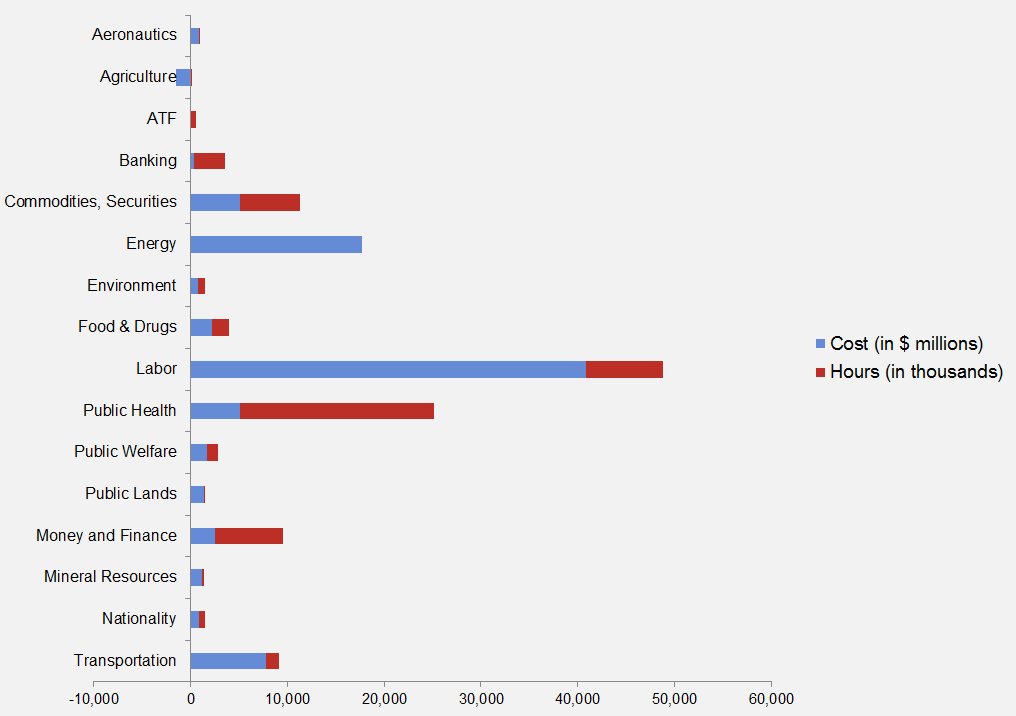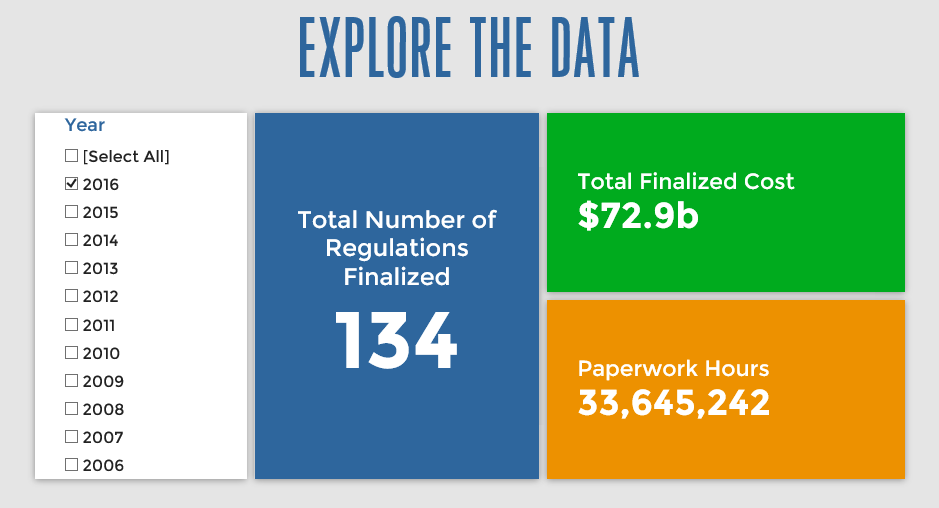Regulation Review
May 23, 2016
$3.6 billion in Regulatory Costs
After more than $6 billion in costs last week, regulators added on another $3.6 billion in burdens this week, excluding the administration’s final overtime rule and proposed Renewable Fuels Standard. Annualized costs were $2 billion, compared to $57 million in monetized benefits; paperwork grew by more than 7.3 million hours. The per capita regulatory burden for 2016 is $277.
Regulatory Toplines
- New Proposed Rules: 45
- New Final Rules: 68
- 2016 Total Pages of Regulation: 32,226
- 2016 Final Rules: $72.9 Billion
- 2016 Proposed Rules: $16.7 Billion
The American Action Forum (AAF) has catalogued regulations according to their codification in the Code of Federal Regulations (CFR). The CFR is organized into 50 titles, with each title corresponding to an industry or part of government. This snapshot will help to determine which sectors of the economy receive the highest number of regulatory actions.
The largest measure this week was a final (512-page) rule from the Securities and Exchange Commission (SEC) implementing the “Consolidated Audit Trail.” The measure regulates securities broker-dealers and would require the establishment and maintenance of a “Central Repository,” which will receive, consolidate, and retain all Consolidated Audit Trail data. The rule imposes $2.3 billion in total costs and adds more than 5.4 million paperwork burden hours.
The Equal Employment Opportunity Commission finalized protections under the “Genetic Information Nondiscrimination Act” (GINA). The rule governs information employees need to provide under employer-sponsored wellness programs. It would cost employers about $52 million to comply.
Finally, the Department of Energy (DOE) proposed energy conservation standards for compressors. Although many DOE conservation regulations are economically significant, this standard imposes just $10 million in annual costs, compared to $57 million in benefits.
Affordable Care Act
The administration finalized its nondiscrimination rule for health care plans this week. It prohibits discrimination based on sex, including transgender status, race, color, and national origin in health plans. The rule would impose costs of $981 million and add more than 800,000 paperwork burden hours, but the administration declined to monetize the benefits.
Since passage, based on total lifetime costs of the regulations, the Affordable Care Act has imposed costs of $48.5 billion in final state and private-sector burdens and 171.4 million annual paperwork hours.
Dodd-Frank
Click here to view the total estimated revised costs from Dodd-Frank; since passage, the legislation has produced more than 73.9 million final paperwork burden hours and imposed $36.2 billion in direct compliance costs.
Total Burdens
Since January 1, the federal government has published $89.6 billion in compliance costs ($72.9 billion in final rules) and has imposed 51.7 million in net paperwork burden hours (33.6 million from final rules). Click below for the latest Reg Rodeo findings.












